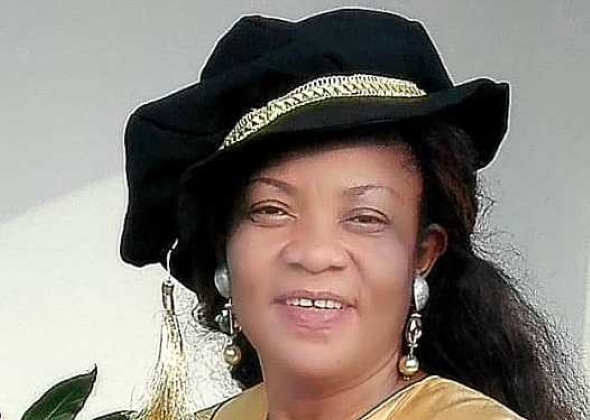News
CORAF is an important organization working to improve food and nutrition security in West Africa. CORAF's recent initiatives are a promising sign of its determination to meet the challenges facing West Africa.
Meet the inspiring journey of Cameroon's first female Director of IRAD: Dr. Pauline, Expert in Post-Harvest Science and Technology and Nutrition

Published on: 12/03/2024
As part of the month dedicated to women, CORAF is highlighting the inspiring portrait of Dr. Pauline MOUNJOUENPOU LIMI, a leading figure in African agriculture. The first woman to hold the position of Research Director at the Institut de Recherche Agricole pour le Développement (IRAD) in Cameroon, she symbolizes excellence and determination in the field of agricultural research. Her commitment to improving food and nutritional security through her work on post-harvest science and technology makes her an inspiring role model for women aspiring to a scientific career in agriculture.
1. Can you tell us about your career in agricultural research?
I began my research career in 2002 at the Institut de Recherche Agricole pour le Développement (IRAD), where I rose through the ranks to become the first female Research Director in 2020. Specializing in food science - nutrition, my work has focused on the prospective approach to traditional technical food processing systems and their impact on final product quality, the environment and the resulting innovations. I have also helped to shed light on the contamination of "made in Cameroon" foodstuffs by mycotoxins and Polycyclic Aromatic Hydrocarbons (PAHs).
In collaboration with NGOs, I have trained nearly 5,000 producers in technological innovations in Cameroon's main agricultural production basins. As an AWARD (African Women in Agriculture and Development) fellow, I have acquired skills in leadership, human resources management and gender issues.
Today, as an expert in post-harvest technology on CORAF's Scientific and Technical Committee (STC), I continue to work for the development of agriculture in Africa.
I have published over a hundred scientific articles in high-impact journals, as well as papers at national and international conferences. I have also written scientific books and book chapters. In addition, I have supervised some fifty students at various levels (PhD, MSC, Ing) in their research work.
I have been awarded several prizes for scientific excellence, including the "Prix de la valorisation" for my work on cassava peelings, and the "Prix du Meilleur chercheur Junior". I am also a member of several learned societies, demonstrating my commitment and contribution to the scientific community.
2. What challenges have you faced as a female researcher, and how have you overcome them?
My journey as a female researcher has been fraught with challenges, not least gender inequality and the marked age difference between my male colleagues. I had to deal with the rejection and domination of my colleagues, who felt that I should remain a mere executor. For two years, I doubted my skills until a chance meeting with a CIRAD missionary at IRAD restored my confidence. Thanks to my perseverance and determination, I overcame these obstacles to become IRAD's first female Research Director. Today, my career is often cited as an example of success, illustrating my ability to successfully balance my personal and professional life, while inspiring other women to follow their own path in the scientific field.
3. Who are your role models or sources of inspiration in the field of agricultural research?
I would like to mention Mr. Bertrand TAILLEZ, the CIRAD Missionary at IRAD, who encouraged me and made me believe in myself. Thanks to him, I was able to obtain a PhD scholarship at the University of Montpellier-2 in France. I'm also thinking of Mr Bernard GUYOT, CIRAD researcher and my thesis supervisor, and Pr Robert NDJOUENKEU, who gave me a lot of guidance and encouragement in my research.
4. What advice would you give to young women aspiring to a career in agricultural research?
I would pass on to them the idea that agricultural research offers rewarding opportunities, accessible to women as much as men. It's vital to set ambitious goals and persevere in achieving them. Women play an essential role in this field, where their contribution can be tangible and significant.
Other news
View allTowards a strengthening of CORAF's actions in...
A delegation from CORAF, led by its Chairman of the Board, Dr Kalifa TRAORÉ, its Executive Director, Dr Moumini SAVADOGO, and its...
A strong plea for African women entrepreneurs...
Many women in West and Central Africa live in an unfavorable environment, with limited access to information,...
CORAF strengthens its partnerships in Burkina Faso...
As part of its mission to strengthen institutional and technical collaboration, a delegation from CORAF, led by its Director,...
Training today's and tomorrow's researchers:...
When AMABA Akéta Akpadji Rébecca completed her Master's degree in Plant Biology in Togo, she was faced with uncertainties about...